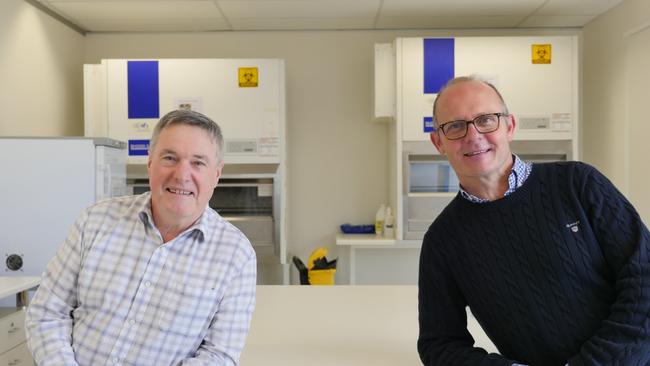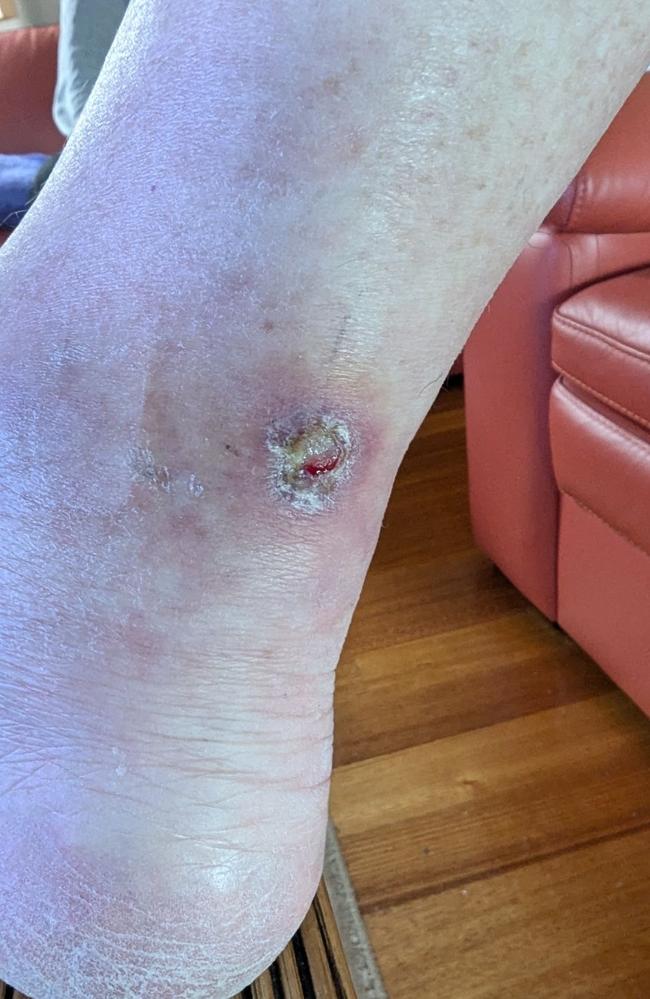Barwon Health trials Telacebec for Buruli ulcer treatment
An Aussie retiree who was left unable to walk for weeks due to a flesh-eating disease has fresh hope.

Geelong
Don't miss out on the headlines from Geelong. Followed categories will be added to My News.
Barwon Health is conducting a world-first clinical trial, with hopes to speed up treatment and healing of a flesh-eating ulcer found in Geelong residents.
The infectious diseases unit is testing the effectiveness of a new antibiotic, Telacebec, in tackling the Buruli ulcer, also known as the Bairnsdale ulcer.
Professor Daniel O’Brien, the department’s director, said if the clinical trial was successful it would make a big difference to how clinicians treated patients.
“Most Buruli ulcers currently require up to eight weeks of treatment with a combination of dual antibiotic therapy,” he said.
Current antibiotic treatment is long, requires two different antibiotics, has a high incidence of side-effects, and may cause serious interactions with people’s other medications.
“Additionally, even with antibiotics, ulcers take many months to heal, requiring costly dressings, regular medical reviews and significant time and inconvenience for the patients,” Prof O’Brien said.
“Through this clinical trial, which is supported by the World Health Organisation, the aim is for Buruli ulcer treatment to be significantly shorter (reduced to two to four weeks), require only one antibiotic, be safer and more tolerable, and result in significantly shorter healing times for lesions.
“It is hoped through our study that the use of Telacebec treatment will become the world
recognised standard treatment for Buruli ulcer, and also lead to improvements in treatment for tuberculosis and leprosy.”
Buruli ulcer is caused by Mycobacterium ulcerans.
The toxins made by the bacteria destroy skin cells, small blood vessels and the fat under the skin, which leads to ulceration and skin loss.
The disease leads to significant physical and psychological illness that can be longstanding.
Queenscliff resident Geoffrey Mutton, 67, was diagnosed in May.

The retiree has been treated for the ulcer on his ankle by Barwon Health using existing medications.
But side effects have caused problems including liver issues and interference with some of his other medications.
“From a tiny wound that looked like an insect bite to a large 50 cent coin-sized wound in just a couple of weeks, seven weeks of antibiotics and acute inflammation of my foot, I was totally unprepared for the debilitating and painful effects of having a Buruli ulcer,” he said.
He was unable to walk for several weeks.
“Any successful trial of an alternative antibiotic that reduced likelihood of side effects and sped up the healing process would be very welcome for patients unfortunate to have been infected,” he said.
Health department figures show Greater Geelong recorded 42 cases of Mycobacterium ulcerans in 2023, while the Surf Coast recorded seven and the Borough of Queenscliffe three.
Transmission has been linked to possums and mosquitoes.
If you are diagnosed with a Buruli ulcer and would like to consider being treated with the new antibiotic, ask your doctor for a referral to the infectious diseases service at
Barwon Health or call the Adrian Costa Clinical Trials Centre.
More Coverage
Originally published as Barwon Health trials Telacebec for Buruli ulcer treatment





